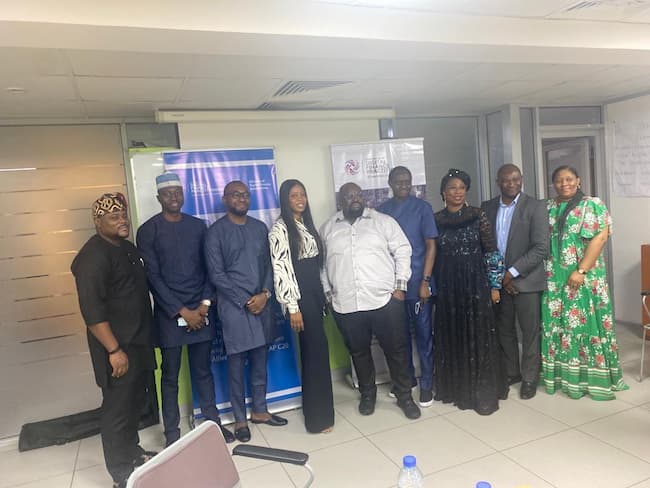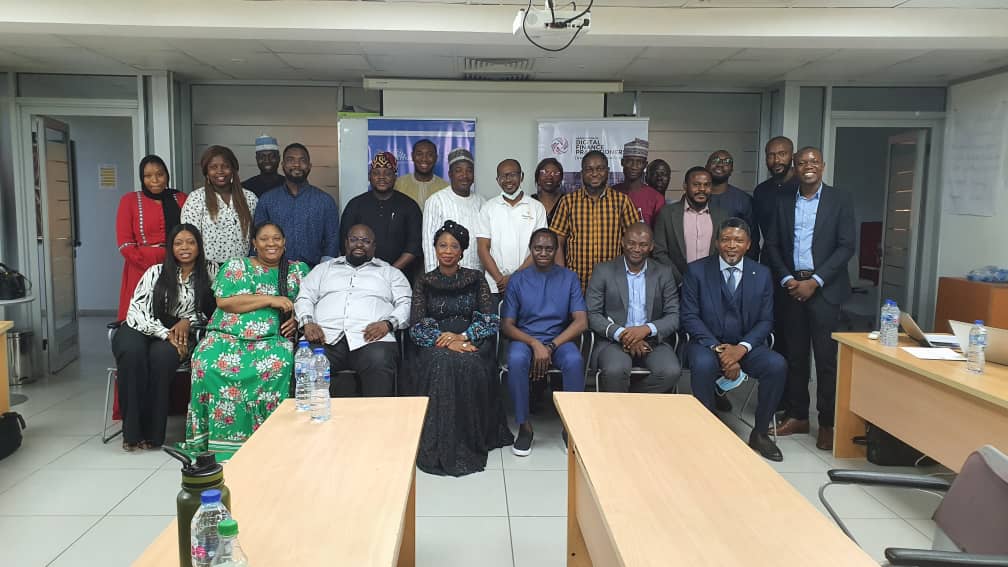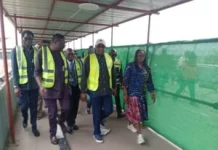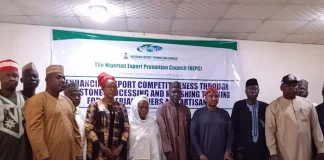The Association of Digital Finance Practitioners (ADFP) in Nigeria has officially launched its Lagos State Chapter and sworn-in newly elected executive committee that would steer the ship of the association for the next year.
Formulated by the Alumni of the Digital Frontiers Institute (DFI) Community of Practice (COP) members, the ADFP Lagos was created to catalyze the capacity of Nigerian Digital Finance Service (DFS) practitioners towards ensuring a greater level of financial inclusion and digital inclusiveness for all. It also seeks to promote digital transformation, ethical work culture within the DFS ecosystem, and contribute to sustainable development.
While delivering the keynote address at the event held on Saturday, December 11, the Chief Executive Officer, Alliance of Digital Finance Associations (The Alliance), Sarah Corley, stated that the inauguration of the Lagos Chapter of ADFP would, no doubt, deepen the DFS ecosystem in Nigeria through the exchange of knowledge, information and promotion of industry best practices.
“ADFP Nigeria is one of the founding members of the Alliance and I am personally happy that we are coming together globally to share a mutual passion about digital finance and to talk about change. It’s not just about learning but about how we can use that knowledge to improve digital financial services and better the lives of many people that are financially excluded by enabling them to have access to credit, insurance, loans and other financial services”.
“We are all part of a big ecosystem that include researchers, bankers, product managers etc. We all know that the banking and finance industry will not remain the same in the next 20 years.
So, if we are saying Digital Finance is a profession, then we need a professional association to belong with. We should have associations that practitioners can be part of to make an impact and that is the role ADFP would fill”, Corley said.
Before the inauguration of the new executives, an interactive panel session was held on “The Role of Country Association in Capacity Building for DFS Design and Delivery”.
The panelists – Folasade Femi-Lawal, AGM, Card & Messaging Business, FirstBank Nigeria; Stanley Jacob, Director, Country Business Development, MasterCard Nigeria; Kayode Olubiyi, Head, Physical Digital Bank, UBA; Kayode Kalejaiye, Head, Digital Products & Innovation, International Digital Financial Services at Essex, UK during the session emphasized the importance of having a community of practice for exchange of knowledge, collaboration and networking in the DFS ecosystem.
According to Kayode Olubiyi, investing in capacity-building should be encouraged by all institutions and regulators as the financial sector continues to evolve. “The entire world is struck by digital transformation and is becoming more interconnected by the day using digital technologies.
Digital finance has brought together people from different fields. To build sustainable financial products, design policies and provide appropriate regulation, we need stakeholders’ engagement – and this include capacity building and knowledge sharing”, he said.
Folasade Femi-Lawal, in the same vein, stated that one of the major ways to bridge the talent gap in the industry is to upskill employees. She said “export of talent is happening all over the world especially and it is important to we build a pool of talent that would quickly fill the industry gap.
Despite the export of talent in Africa, many organizations across the world are still looking forward to extending their footprint in Africa.
So, we need the ADFP to be at the forefront of talent development for the future. Undertaking the Certificate in Digital Money (CIDM) and the Leading Digital Money Markets (LDMM), and other Digital Frontiers Institute (DFI) qualifications certified by the Fletcher School at Tufts University, USA should be encouraged by all institutions especially for those in the financial sector and other related job roles.”
According to Stanley Jacob, ADFP is already producing leaders that are passionate about financial innovation. He charged the newly elected executives of ADFP Lagos to be a major driver of DFS innovation and to collaborate with innovation hubs, banking and finance institutions and other key stakeholders in Nigeria to bridge the talent gap.
The new executives emerged after a keenly contested election that took place virtually from November 27th to 28th, 2021.
Abubakar Shehu, Director VAS, Gateway and Broadband Sales, Globacom who was elected as the President of the ADFP, in his remark, commended the electoral committee for a free and fair election and the event organizing committees for hosting a successful historic event.
“As we consult with the board of trustees to fulfill the objectives of the ADFP, we promise to do our best to make the association a force to reckon with in the industry as we promote financial inclusion and advocate for more stakeholders’ policies and regulations that would deepen the DFS ecosystem in Nigeria”, he said.
“The most basic level of financial exclusion is an individual’s lack of a bank account. In the UK, about 4% of the total adult population i.e 2.1million of 54.1million, as of 2018 lack a bank account. Although, according to the World Bank Global Findex report, this number has fallen slightly in the last years; this shows that there is still a lot of work to be done globally on financial inclusion”, Kayode Kalejaiye added.
Other elected members of the committee include Adedoyin Samo, Group Head, HR & Admin., Zedcrest Capital Limited, elected as Vice President; ‘Nifemi Oluboyede, Product Manager – credit, Kuda Digital Bank elected as Secretary; Lukmon Oloyede, Head, Product Marketing & Brand Communication, Zedvance Finance Limited emerged as Publicity Secretary; Yemi Kehinde, Group Head, Zedcrest Capital Limited as Legal Officer and Amarachi Wogu, Head, Channel Delivery, Inclusive Banking at Heritage Bank Plc as Welfare Officer.
Since 2016, Nigeria has had over 300 professionals trained in different aspects of digital financial services design and delivery across the domains of operations, technology, and regulation.
Such knowledge and skillset cannot guarantee the anticipated impact if not well harnessed. To achieve this, the country-level Community of Practice was set up to coordinate professional knowledge discourse and practice among DFS enthusiasts undertaking the CIDM, LDMM and other courses.

Graduates of these courses alongside other specialized courses have today become members of alumni networks in over 21 countries across the globe. These alumni networks which have grown into legally registered country associations, continue to play a significant role in deepening the DFS ecosystem through expansive and inclusive professional membership development opportunities, while also contributing to the growth of financial inclusion and the digital economy.
Nigeria has the rare privilege of having two chapters of the alumni network (Lagos and Abuja) under the Association of Digital Finance Practitioners (ADFP), Nigeria. It is the vision of ADFP to be a world-class professional association that will contribute to the evolution and development of the DFS ecosystem.
The Association of Digital Finance Practitioners (ADFP) in Nigeria is a founding member of the Global Alliance of Digital Finance Associations (ADFA) and registered under the provisions of the Companies and Allied Matters Act CAP C20 LFN 2004.
As a professional association of certified and experienced industry practitioners and academia, AFDP is guided by a constitution under an advisory oversight of a board of trustees. ADFP is run by an executive team with years of experience in both industry and academia.













